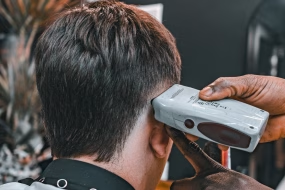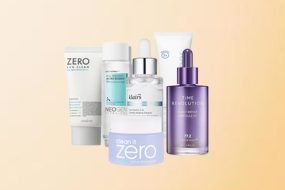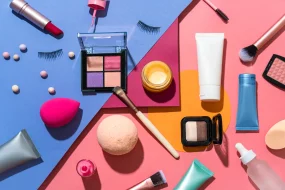Fun fact: Did you know your skin naturally sheds about 500 million cells every single day? That’s a lot of skin regeneration happening beneath the surface — and it turns out, exosomes might just be the future of making that process even more effective.
If you’re someone who keeps an eye on the latest beauty buzzwords, especially those promising glowing, youthful skin, chances are you’ve seen exosomes trending lately. Whether popping up in your facialist’s new serum, your derm’s latest procedure, or your favorite influencer’s skincare routine, exosomes are being hailed as the big skincare trend of 2025.
But what are they, really? And do they truly live up to the hype?
What Are Exosomes?
Let’s start simple. Imagine your skin cells are tiny letters being sent across your body. To deliver messages from one cell to another, your body uses tiny messengers called exosomes. These are microscopic bubbles — think ultra-mini FedEx packages — loaded with proteins, lipids (fats), and genetic material like RNA. They help shuttle information between cells to help them repair, rebuild, or regenerate.
Exosomes are part of your body’s natural healing system. Most of the time, we never even know they’re working behind the scenes. But now, thanks to advances in science, skincare pros are finding ways to harness them for beauty treatments — and that’s where things get exciting.
Why Is Everyone Talking About Exosomes in Skincare This Year?
Skincare trends often start where science and beauty meet — and exosome therapy is a perfect example. As more people chase non-invasive alternatives to procedures like Botox or lasers, exosome-based treatments are gaining traction for their ability to accelerate healing and visibly improve skin.
Here’s why exosomes are the hottest skincare trend of 2025:
- They speed up skin repair. After treatments like microneedling or chemical peels, exosomes can help soothe inflammation and promote faster healing.
- They target visible signs of aging. Think fine lines, wrinkles, dull skin, and uneven texture — exosomes are packed with genetic material that “tells” cells to behave younger.
- They work around the clock. Unlike some skincare ingredients that stop working after a few hours, exosomes keep stimulating the skin long after they’re applied.
How Are Exosomes Used in Skincare?
There are two main ways exosomes are used in skincare: topically (applied to the skin’s surface) and professionally (in-office treatments).
1. Topical Exosome Skincare Products
From serums to creams, many brands are infusing exosomes into their product lines. These formulations typically use lab-grown, purified exosomes, often derived from stem cells or plants. The idea is that these exosomes help signal your skin cells to work better, boosting collagen production, evening out skin tone, and enhancing hydration.
Popular types of topical exosome products:
- Exosome-infused serums
- Post-procedure recovery creams
- Anti-aging face masks
It’s important to note: scientific research on how well topically applied exosomes work is still developing, but so far, early results are promising.
2. In-Office Exosome Treatments
Dermatologists and cosmetic clinics are now offering exosome therapy as an upgrade to procedures like microneedling, lasers, or even injectables.
Here’s how it works: After a treatment like microneedling, which creates tiny open channels in your skin, your provider can apply exosomes to enhance healing and results. Because your skin is already activated and more receptive, exosomes can get deeper and work more effectively.
Benefits of professional exosome therapy:
- Reduces redness and downtime after procedures
- Delivers faster and longer-lasting results
- Improves skin texture, tone, and elasticity
Are Exosomes the Same as Stem Cells?
This is where things can get a bit confusing. Exosomes are often mentioned in the same breath as stem cells, but they’re not the same thing.
Stem cells are like your body’s master cells — they can become pretty much any kind of cell and help rebuild tissue. Exosomes, on the other hand, are particles *released* by stem cells to carry messages. They don’t become cells themselves, but they do help activate natural repair processes.
So, while they’re connected, exosomes are actually safer and more focused. They don’t carry live cells — just the targeted messengers that help your skin perform better.
Are Exosomes Safe for Everyone?
For the most part, yes — exosome-based skincare is generally considered safe, especially when derived from well-regulated sources like lab-cultured stem cells or donor placenta (with proper screening and ethics in place).
But like all skincare, results and reactions can vary. People with severe skin conditions or autoimmune diseases should talk to a dermatologist first.
Things to check before trying exosome skincare:
- Only use products from reputable brands with transparency around sourcing
- If doing an in-office treatment, make sure your provider is licensed and trained in exosome use
- Always do a patch test with new topical products
What Does the Science Say?
Here’s where the story gets a bit nuanced. While early research and clinical trials show encouraging results, large-scale, long-term studies are still in progress. Most experts agree exosomes have huge promise in skin health — especially in regenerative medicine — but we’re just getting started.
Peer-reviewed studies (research that has been reviewed by other scientists) so far have shown that exosome therapy can help stimulate collagen, reduce inflammation, and even improve wound healing. But personal results may vary based on age, skin type, and treatment consistency.
Who’s Using Exosomes Right Now?
From A-listers to skincare pros, exosomes are picking up fans fast. Celebs like Gwyneth Paltrow and Kim Kardashian have been reported to use exosome therapy post-laser to speed up skin recovery. In the professional world, estheticians and dermatologists are starting to use exosome boosters in high-end facials and post-procedure care.
And it’s not just for the face. Clinics are even exploring exosome therapy for scalp health to combat hair thinning — another area we’ll likely hear more about in 2025.
Is It Worth Trying Exosome Skincare?
If you love staying ahead of beauty trends and have some room in your skincare budget, exosome products or treatments could be a smart upgrade. They’re especially appealing if you often get microneedling, resurfacing, or laser treatments and want to heal faster with better results.
That said, it’s not a magic bullet. Like many high-performance skincare innovations, regular use and combination with other healthy habits (hydration, sunscreen, good sleep) are key.
Final Thoughts
Exosomes may be tiny, but their role in skincare is shaping up to be anything but. As research grows and technology evolves, we’re likely to see exosome treatments become more tailored, accessible, and effective.
So if you’re looking for smarter ways to support your skin’s natural regeneration — and don’t mind being a little early to the party — exosomes might just be worth exploring in 2025. At the very least, now you can drop the term at your next facial and sound like a true skincare insider.
Quick Recap: 5 Things to Know About Exosomes
- Exosomes are tiny messengers that help cells communicate and repair the skin.
- They’re trending in both at-home skincare and in-office treatments for boosting healing and anti-aging effects.
- Unlike stem cells, they don’t become new tissue — they help activate your skin’s existing repair systems.
- Scientific research looks promising, though more large-scale studies are on the way.
- They’re especially effective when paired with skin-rejuvenating procedures like microneedling or laser therapy.
Ready to Try Exosomes?
If you’re curious about adding this trend to your regimen, start by talking to a trusted skincare professional. And watch for products from reputable brands that provide clear science behind their formulas.
As skincare continues to blend biotech and beauty, exosomes just might be the microscopic MVPs of the future.









